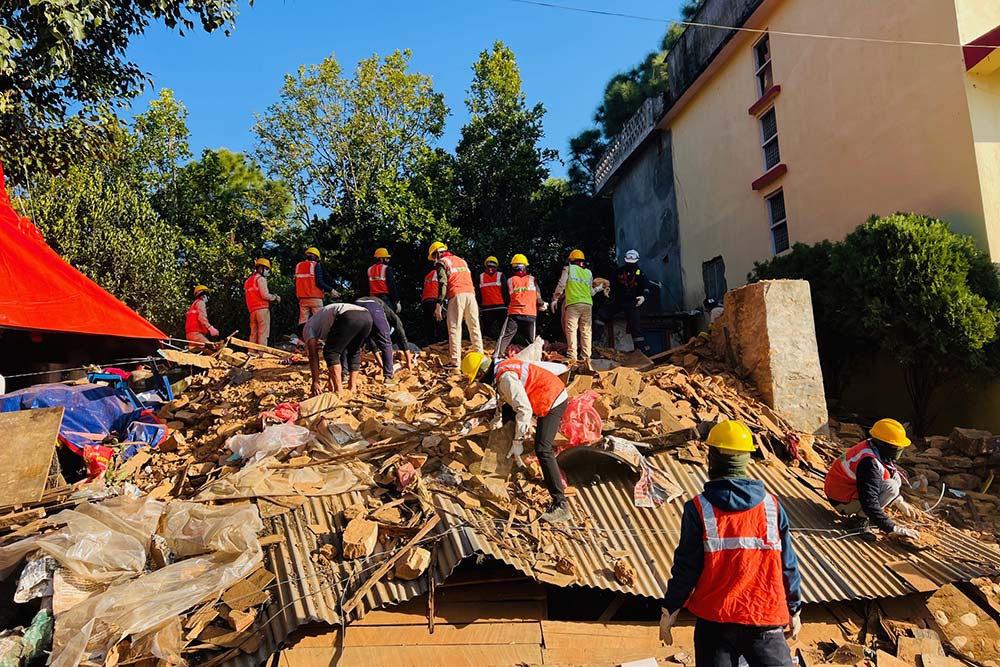
By B360 Correspondent
Nepal government is preparing to opening up investment abroad in the sectors that have competitive edge and facing market saturation within the country.
Recently, Finance Minister Yubaraj Khatiwada has said that his Ministry has been preparing the draft bill to amend the Foreign Exchange Regulation Act 1962 which has banned Nepalis from investing abroad. “We will submit the amendment bill shortly in the parliament,” he said. The parliament may discuss this bill in its winter session.
“The purpose of the amendment of Foreign Exchange (Regulation) Act is to partially deregulate investment abroad that Nepali investors have been demanding since long. To open up outward direct investment will be logical in specific sectors where Nepalis have expertise, skills and technical knowhow,” the Finance Minister stressed.
In a globalised world, capital and labour are moving easily from one place to another, and if Nepali investors have the potential to expand the size of their business taking Nepali brands across the globe, the government must open up outward direct investment at the earliest, urge private sector players.
“Restriction on investment abroad has squeezed the potential of Nepali investors,” said former Vice Chairman of the National Planning Commission Min Bahadur Shrestha, who had carried out research on opening up outward direct investment when he was Chief of the Research Department some five years back. Earlier, the government had restricted investing abroad to control capital flight. This is no longer valid because it is difficult to control capital flight. It will be wiser to deregulate investment abroad in certain sectors with certain conditions on investors.
Areas where investment may open up
The initial draft of the bill obtained by Business 360 to amend the aforementioned law has listed banking, insurance, noodles, footwear, construction and hotels and hospitality sectors as potential sectors for deregulation of outward direct investment.
Talking to Business 360, Revenue Secretary of the Ministry of Finance Shishir Kumar Dhungana has said that the draft bill has listed some sectors concluding that these could be the potential sectors for expansion in terms of their expertise, skill, technical knowhow and ability to be cost effective in service delivery as well as production.
“Restricting investment in foreign countries has been preventing growth prospects of certain sectors that have immense potential,” said the Revenue Secretary, “Barring investment abroad does not necessarily translate to increased investment within the country and curb capital flight but we can expect the practice of rampant hundi/hawala to be minimised after deregulating investment abroad.”
Citing the example of noodles, Dhungana said that local noodles manufacturers have to pay 80% customs duty to export noodles to Bangladesh, but if we allow a Nepali manufacturer to invest in Bangladesh, he or she will get local treatment there and can be competitive. Importing countries have placed priority on investment rather than imports. They provide incentives on foreign investment as it will create jobs in their economy and propel growth.
Dhungana added that the government would permit outward direct investment after cross-checking the sectors, the market potential, commitment to repatriate profit back home, and investment in priority sector defined by the government.
Allowing outward direct investment does not necessarily mean allowing investors to take away capital as they wish. Investment will be opened for institutional investors following their commitment to return the profit earned by investing in the sector of their expertise to Nepal, according to revenue secretary Dhungana.
The Foreign Investment and Technology Transfer Policy has already stated that doors would be opened for investment for real investors on the basis of proper regulation.
Curbing hundi/hawala
Despite the ban, Nepalis are already making investments abroad using remittance money to invest abroad. Illegal means like hundi has thrived as remittance gets diverted. Many believe that if the government formally opens up investing abroad it could be regulated and decrease fraudulent activities.
Bhishma Raj Dhungana, Executive Director of the Foreign Exchange Management Department of Nepal Rastra Bank, said it was prudent to legally allow investors to invest abroad in certain sectors, especially as they have been resorting to illegal channels at present.
Private sector players have hailed the government’s plan of deregulating investment. Shekhar Golchha, Senior Vice President of the Federation of Nepalese Chambers of Commerce and Industry has said that the amendment of the law to deregulate investment will not only let Nepali entrepreneurs enhance their the capacity, but also provide an opportunity to expand Nepali businesses across the globe.





